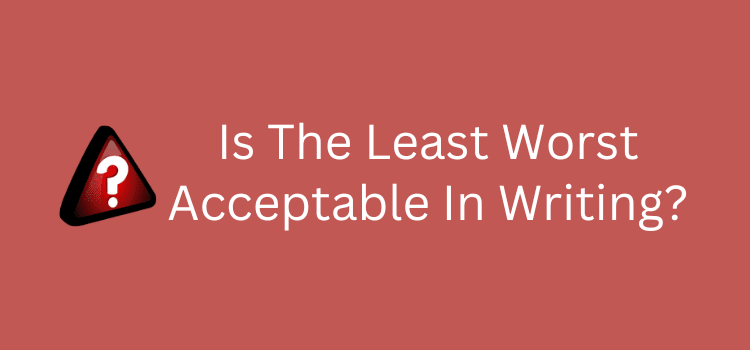
The adjective phrase, the least worst, has been a topic of debate among grammar enthusiasts for a very long time.
Many argue that you should avoid it in writing because it is not grammatically correct.
In grammar, a superlative adjective defines only one thing as the best, worst, least, or most. In this sense, the least bad is the correct alternative.
However, despite being grammatically incorrect because it relates to more than one item, the phrase is in frequent use in everyday language.
Why do we use the least worst?
Generally, writers or speakers use it to describe a situation where multiple options are available, but all are undesirable.
In this case, the least worst option is the one that is the least bad or will cause the least harm.
For example, if someone is faced with a difficult decision between two unpleasant options, they might say, “I’ll choose the least worst option.”
Despite being a widely-used phrase, it is technically incorrect from a grammatical standpoint.
It is because the least and worst are both superlatives. They describe something as being the least acceptable or the worst among a group or list.
Combining two superlatives is considered incorrect grammar because it creates redundancy.
However, despite its grammatical flaws, it is a useful phrase. It can help us communicate our thoughts and feelings more accurately.
It allows writers to express a nuanced opinion about a situation and convey that while all options may be bad, some are still worse.
Language is constantly evolving and changing, and as such, new phrases and expressions are created all the time.
While it may not be technically correct, it has become an accepted part of everyday language. In fact, many dictionaries now list it as an informal adjective.
Usage of the double superlative adjective
Frequent use began around 1980 and has increased since then.
However, the grammatically correct form, least bad, has also increased in use over the same period.
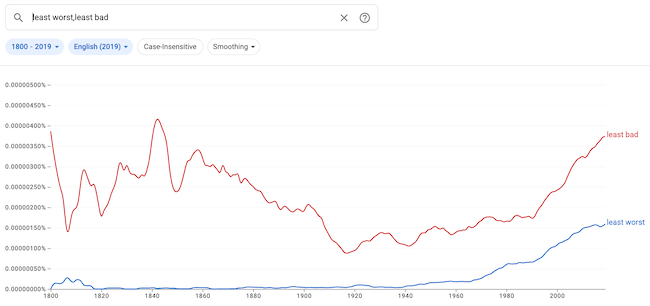
It is very common to find the phrase in newspaper articles.
“European leaders welcome Brexit deal as least-worst outcome.” The Guardian 24 December 2020.
“There is no one who made me feel I have to vote for them yet. I am looking at the least worst options.” The New York Times 21 October 2022.
“World Cup board chairman Chris Brindle told a press conference it was a “solemn day for the sport” while chief executive Jon Dutton said the decision to postpone was the “least-worst” option.” The Independent 5 August 2021.
Here are more examples of the phrase in print.
“No-one knows for sure what the impact of Brexit will be, but a no-deal scenario is the least worst option for the UK,” The Times, 20 November 2018.
“The least worst option is to change the subject and make light of the situation,” The Guardian, 8 February 2021.
“The government has announced that the least worst option for dealing with the budget deficit is to raise taxes,” The Economist, 18 March 2020.
“We face a difficult decision, but choosing the least worst option is better than doing nothing,” The Independent, 2 May 2019.
As you can see, it is an expression that frequently occurs, especially in business and political contexts.
It’s worth noting that the expression is sometimes hyphenated. It’s a choice, perhaps depending on style guide advice.
Should you use the least worst in writing?
If you are a stickler for good grammar, perhaps you might be reluctant to use it.
However, the correct form of the expression, the least bad, is not always suitable. While it might be correct, for some, it reads poorly.
You could use other expressions with similar meanings when faced with only bad options.
The best of a bad bunch.
The lesser of two evils.
The best of the worst choices.
The least damaging choice.
However, capturing the same sense in one or two words is not always easy.
It is the reason why least worst has increased in use.
No other double superlative works
It’s an anomaly because it’s impossible to use the same structure with other superlative adjectives.
You wouldn’t use the most best, the least best, or the least furthest.
None of these combinations make sense.
But somehow, the least worst makes sense now to many readers and writers.
It is simply one of the many new words or expressions we use to communicate an idea succinctly.
Conclusion
Yes, you might consider least worst to be grammatically incorrect.
But it is a useful phrase that is widely used now in everyday language.
It is always important to strive for correct grammar in writing.
However, it is also important to remember that language is constantly changing, and new expressions and phrases are created all the time.
One that grates on me is, reaching out when it means contacting someone. But it is a common and acceptable term now.
Another is the word irregardless when regardless is the correct word.
Ultimately, it’s up to you as a writer to decide. There is no right or wrong answer or choice on these points.
Related Reading: De-escalate Or Deescalate? An Unsightly Word Either Way

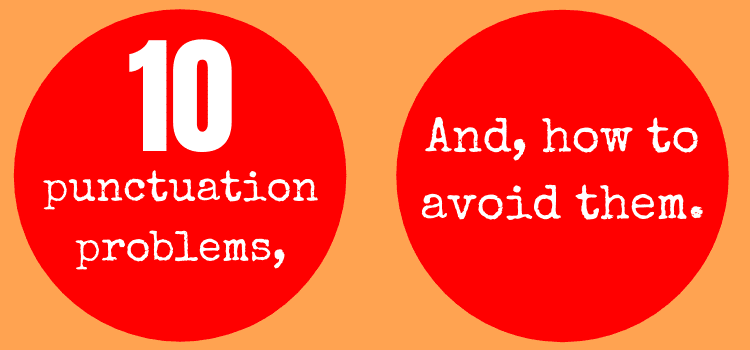
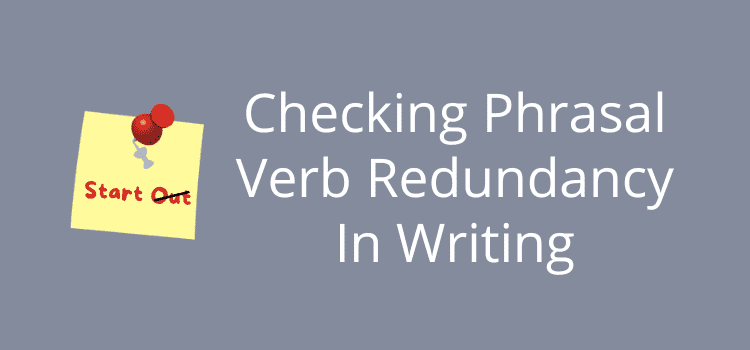
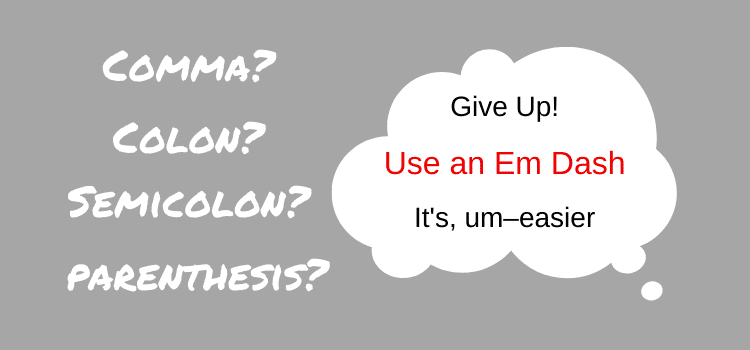
I do not believe that using the least worst isn’t the most best negative expression. But that’s just my opinion on days that don’t end in the letter “y”.
– MJM, grammarian to the Stars…
I agree with you, Michael.
The least best days to worry about grammar end in Y. All the other days are merely the least worst!
‘Least worst’ sounds wrong to my rather old ears. I would not use it in writing, except in dialogue, possibly.
I am always aware that language changes, but I don’t have to like it.
The two that grate on me more than ‘least worst’ are the use of ‘amount’ (and ‘less’, too) for counted things, when it actually refers to measured things. The correct word is ‘number’ or ‘fewer’ as in ‘There was a large number of people at the concert’, or ‘The opposition scored fewer goals than we did’.
The other thing is the confusion between ‘to lie’ and ‘to lay’. ‘To lie’ seems to be vanishing. I see ‘I laid on the floor’ far too often.
Oh, and the increasing use of ‘anyways’.
You and I share many of the same pet peeves, Vivienne.
It’s inevitable that language changes and degrades over time, but it would degrade even more quickly if it weren’t for those of us doing our level best to resist it. When the language changes too much, we lose our connection with the past. Even moderately educated people of my parents’ generation could read Shakespeare and Spenser and Milton and Chaucer. People of my generation could read them if we had a somewhat better than average education. People of my children’s generation… don’t get me started. They have lost something extremely valuable, and the worst of it is that they don’t even realize what they’ve lost.
Oh yes, V.M. The use of anyways in writing always makes my nerves jangle.